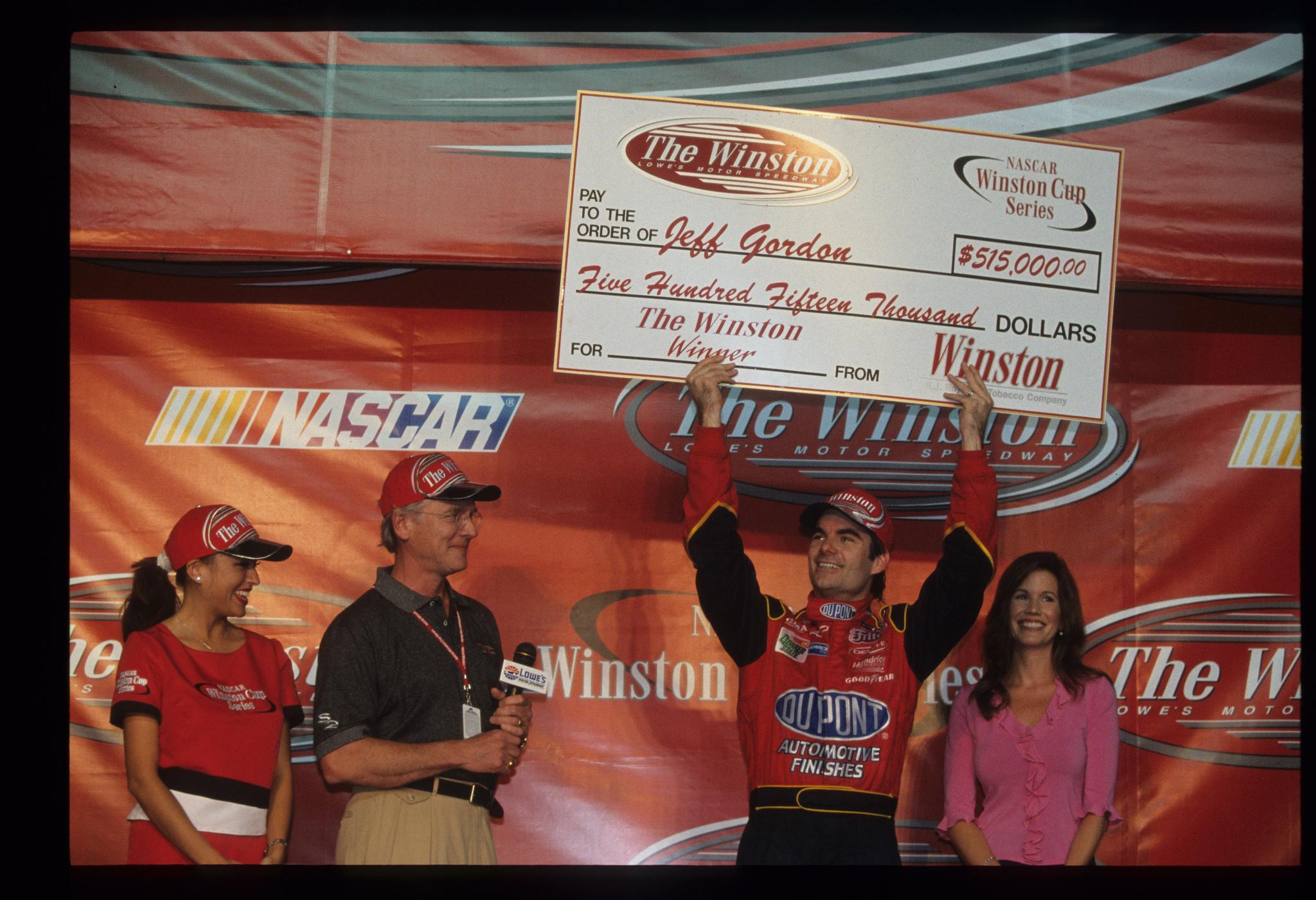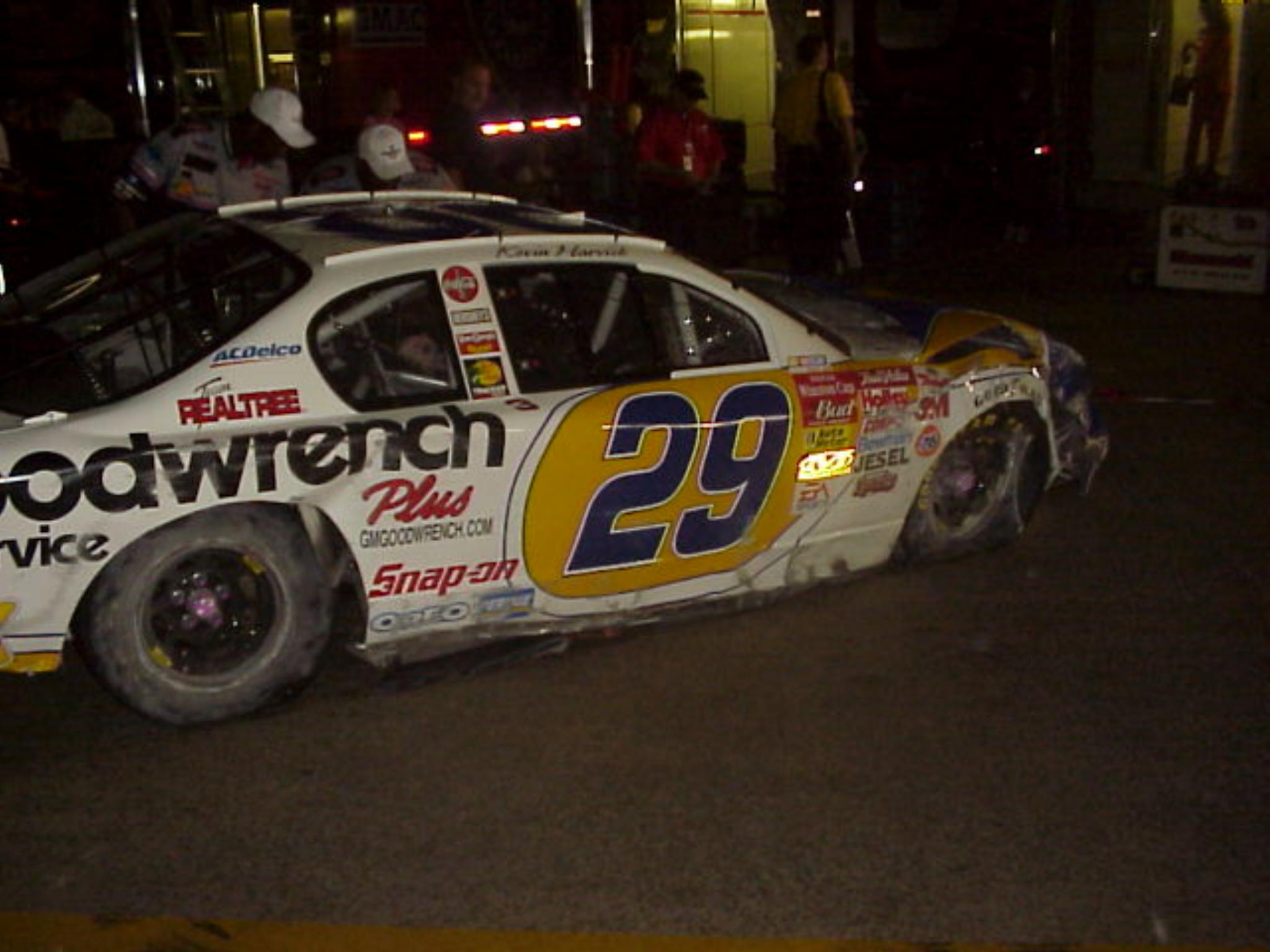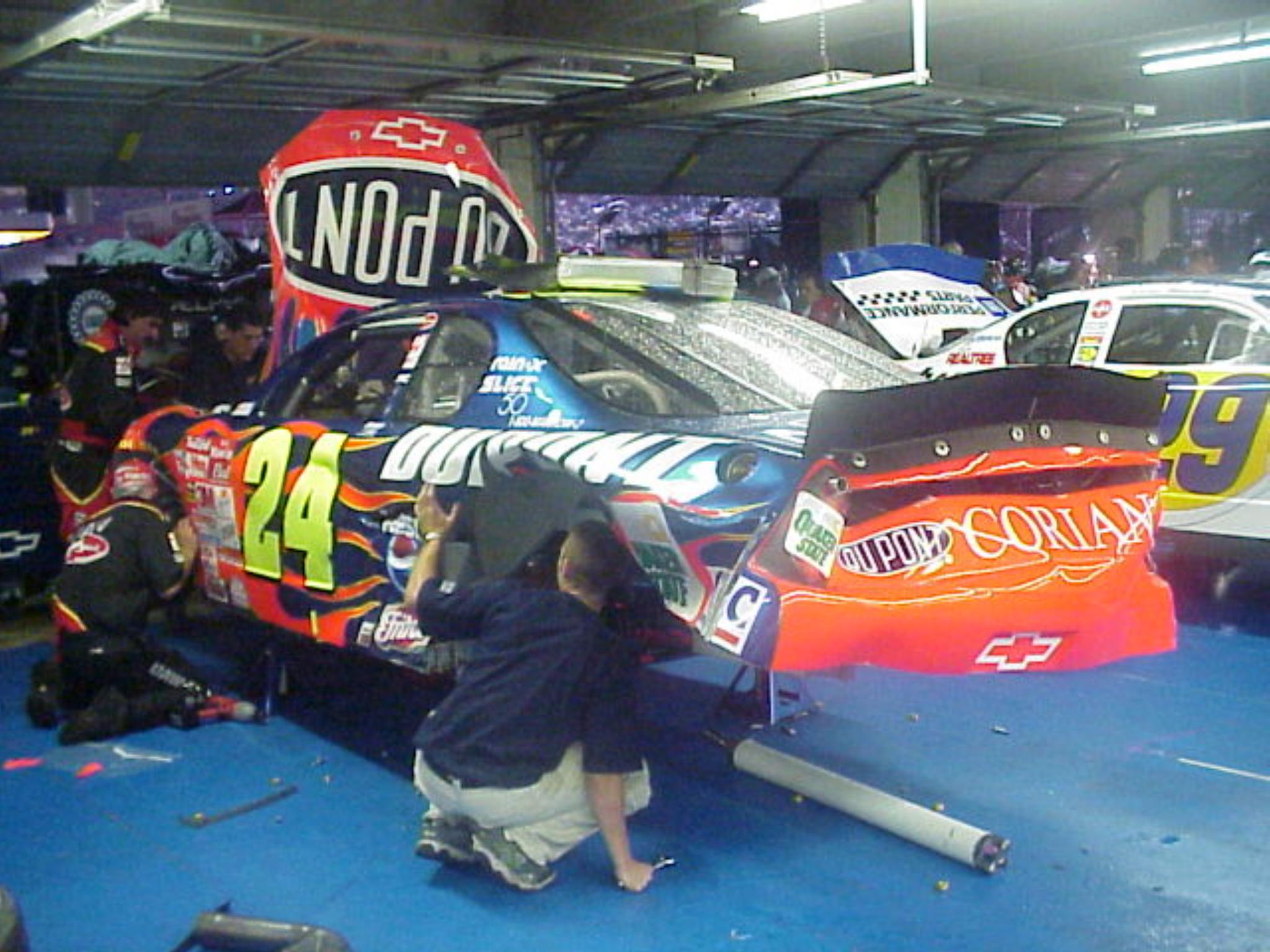All Star Moments: 2001 – “Sparks and Concrete”
 |
| Jeff Gordon Wins the 2001 All Star Race |
| Charlotte Motor Speedway |
The NASCAR Sprint All Star race has produced many memorable moments in its 31-year history, from sheet-metal grinding crashes to bench-clearing pit crew brawls to miracle finishes that have all served to make the All Star Race one of the most storied events in all of NASCAR.
The all-event event is like no other race, with its own set of rules and unique twists – three-lap qualifying, different race setups, intermissions, inversions, eliminations. It all combines to make the race itself a challenge for the drivers and crews alike who have to change, to adapt, to survive – all for a chance at a million-dollar payday and the bragging rights to call yourself an All Star Race winner.
The fact that the race is a non-points event means there's a lot of curveballs that can be thrown into the mix in the All Star Race – sometimes these curveballs are announced way in advance, and sometimes they happen on the fly.
For the 17th-running of the NASCAR Sprint All Star on May 19, 2001 – then known as "The Winston" – the curveballs came courtesy of Mother Nature, and set the stage for one of the most unlikely victories in NASCAR history.
The 2001 edition of the All Star Race was a first for a lot of reasons, not the least of which was it was the first All Star Race held after the death of seven-time Sprint Cup Champion Dale Earnhardt, who had died in a last-lap crash in the season-opening Daytona 500.
Earnhardt, a three-time winner of the event, had started every prior All Star Race, and himself was involved in some of the most memorable moments in the race's history such as "The Pass in the Grass" and "One Hot Night".
[adinserter name="GOOGLE AD"] In Earnhardt's place was rookie driver Kevin Harvick, who took over the newly-renumbered no. 29 Chevrolet the week after Earnhardt's death. Harvick already had a granted spot in the all-star event by virtue of Earnhardt's victory at Talladega in October of 2000, but had earned spot in his own right with a victory at Atlanta in just his third series start.
Also in the field for the first time as a race winner was Michael Waltrip, who won the Daytona 500 in a car owned by Earnhardt.
The 2001 "Winston" got underway with polesitter Rusty Wallace leading the field to the green flag under increasingly threatening skies, following a light rain that had fallen during driver introductions.
As Wallace led the pack going into turn one, the entire front half of the field shot up the banking like they were driving on ice, many of them pounding the outside wall. Jeff Gordon, who had started middle of the pack in the 21-car field, bounced off the wall and directly into the path of Waltrip, destroying both of their cars.
In all, 10 drivers had damage to their cars, including Harvick, Gordon and Waltrip. The race hadn't even officially begun, and already the night was over for nearly a quarter of the field.
When the smoke cleared, it became clear what had happened: a rain shower had moved in over the racetrack, but had only made it over turns one and two, drenching the turns while the rest of the track was still clear. Within minutes of the crash, the entire track was enveloped in a downpour.
The long and short of it: NASCAR had waved the green flag on a wet racetrack.
Looking over his battered car in the garage area, Harvick was not at all pleased.
 |
| Kevin Harvick's wrecked racecar |
| Pete McCole/AR1 |
"I didn't know why were wrecked at first, but when I saw rain on the windshield, I knew why," said Harvick. "But, they got to get their show going. They got what they wanted – sparks and concrete."
But, this wasn't any regular race – this was the All Star Race, and the regular rules just didn't apply.
Since the race never officially started, NASCAR took the unprecedented step of allowing the effected teams to pull out their backup cars and restart the race in the back of the field. Since the red flag was out for track drying anyway, there would be plenty of time to run them through tech and get them on the track.
Gordon, Harvick, Waltrip and Jeff Burton all went to backup car as the crews went to work getting the cars race ready, while Burton's Roush Racing crew took it one step further – putting their race engine in the backup car as well.
 |
| Jeff Gordon's primary car after the first-lap crash |
| Pete McCole/AR1 |
"It's unfortunate – it didn't look like it was raining that hard when we took the green, but boy, when we got to (turn) one it was coming down hard," said Gordon. "We tore up some cars, but hey – this is The Winston, it just gets more and more interesting all the time. We're having to get the backup car out. Who knows, maybe we can go win with the backup – wouldn't that be a story?"
After a rain delay of more than two hours, Wallace brought the field back to the green flag again just after 11:30 pm.
By the end of the first segment, Gordon had worked his way back into the top five, and then finished runner-up in the second segment, starting alongside leader Ward Burton for the final 10-lap shootout.
Just one lap into the final segment, Gordon powered past Ward Burton on the outside coming through the frontstretch and pulled away to win the All Star Race by ten car-lengths over Dale Jarrett for his third all-star victory. In his backup car.
Gordon's victory marked one of the only times in NASCAR's modern era that a driver won a race in a different car than he started it.
Of course, since it was All Star Race, that fact didn't officially count. But if it hadn't happened in the All Star Race – a race like no other – it likely never would have happened at all.
Special thanks to Jonathan Coleman and the PR Staff at Charlotte Motor Speedway, and to Brandon Reed for their contributions to this article.
[adinserter name="GOOGLE AD"]
